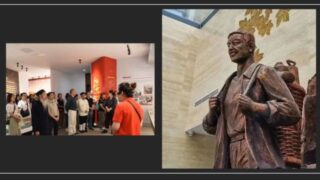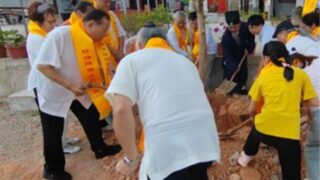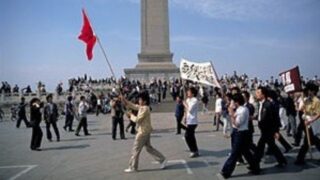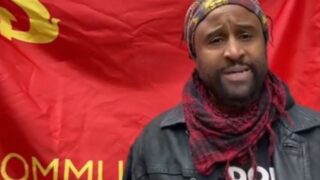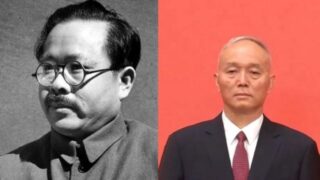In preparation for the 70th anniversary of the founding of the People’s Republic of China, authorities throughout China spare no efforts to suppress dissent.
by Shen Xinran
Bitter Winter has obtained documents, issued by local governments in the provinces of Shanxi, Liaoning, and Anhui, according to which, “wartime measures” will be implemented to ensure “stability maintenance” during this year’s National Day, which marks the 70th anniversary of the founding of the People’s Republic of China on October 1.


As per the documents, in preparation for the celebrations and during them, authorities will impose “combat readiness” to prevent anti-government unrests, “street politics,” “color revolutions,” and other civic movements that could pose a threat to the regime. Particular attention should be paid to the impact of the Sino-US trade war and the pro-democracy protests in Hong Kong may have on citizens in mainland China. Local authorities are requested to crack down on “harmful” political information and “maintain political security in the realm of ideology.”
All eyes on Beijing
The capital Beijing, where a large military parade is to be held for the anniversary celebration, is the epicenter of stability maintenance work. A document entitled Work Plan for Maintaining Security and Stability During the 70th National Day Celebrations, issued by the Political and Legal Affairs Commission of a locality in the northeastern province of Liaoning, calls for increased intelligence gathering ahead of the event. “Keep a close eye on Beijing, keep a close eye on large scale gatherings, and keep a close eye on individual extremism,” the document states, emphasizing that information from insiders about potential actions that may involve violence must be collected to ensure that “politically problematic people” “are not going to Beijing, not holding gatherings in the local area, and not colluding with other areas.”
Residents of Beijing have reported to Bitter Winter that some public establishments, like bars, have been closed down, migrant workers have been ordered to return to their hometowns, and people with non-local accents are often questioned by on-duty officers. When out-of-town friends or relatives come to visit, they are only allowed to stay in Beijing for three to ten days.
Believers become key targets of “stability control”
As a rule, people of faith and ethnic minority groups are listed among the primary targets of stability maintenance measures during important holidays and CCP events. The National Day celebrations this year are no exception. The document from Liaoning Province calls for implementing precautionary measures “for each key person and key issue to ensure that a close eye is kept on them and to ensure social stability in the local area.”
The government is committed to halting potential issues at an early stage, “resolving all conflicts that can be defused, and ensuring effective stability maintenance for conflicts that temporarily cannot be neutralized.”
Government report on the video conference about security and stability work
in Jilin Province ahead of the National Day.
“We can’t travel freely; we have to ask for permission to leave the locality. No matter where we go, the government always knows where we are,” the legal representative of a state-controlled Three-Self church complained.
A member of Association of Disciples, a Chinese new religious movement, told Bitter Winter that during last year’s “Two Sessions” – the Chinese People’s Political Consultative Conference and the National People’s Congress – he had to take his child to Beijing for medical treatment. While there, he received a phone call from a police officer in his registered place of residence, asking him where he was. Shortly afterward, two police officers tracked him down in Beijing and questioned him about his child’s illness. A month later, the next day after he returned from Beijing, police officers showed up at his house. It turned out that the reason for their visit was that the authorities couldn’t monitor him through his phone, which he damaged by accident that day. The officers explained that they were surveilling him because he was arrested for sharing the gospel ten years ago, and his visit to Beijing during the “Two Sessions” seemed suspicious.
A member of The Church of Almighty God in Shandong was intercepted by the police while traveling for work during last year’s “Two Sessions.” The reason given by the police was that she was once sentenced to three years in prison for her faith, and her “route passed through Beijing.” She was kept under house arrest for 37 days and ultimately lost her job over the matter.
Officials get ready to intercept petitioners
People who seek justice by petitioning the government have also always been key targets of control during Communist Party conferences, festivals, and other “sensitive” events. For this year’s National Day, local government officials across the country are striving to find ways to prevent petitioners in their locality from traveling to provincial capitals or Beijing.
A government insider from a city in the eastern province of Shandong revealed to Bitter Winter that a team of people organized by the local government had been assigned to go to Beijing to intercept petitioners. Also, teams of two or three officials pretend to be petitioners and go to places frequented by them to infiltrate their groups. They take photos of activists and upload them on a specially created group on WeChat messaging platform. The government unit in charge of stability maintenance and control then dispatch personnel to take in these petitioners.
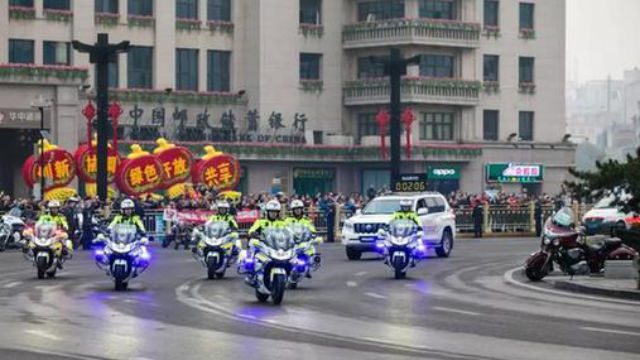

A management staff member at a coal mining company in the northern province of Shanxi said that the local government had ordered to investigate suspicious activities by the company’s staff. If two or more employees petition the government during the National Day, the company’s leaders will be relieved of their position, and the petitioners will be fired immediately.
A human rights activist in the southeastern province of Fujian, who wished to remain anonymous, revealed that he was detained before this year’s “Two Sessions” at an “educational base” for more than 20 days. Five surveillance cameras were installed in his room, and three guards kept watch over him. He was not released until the “Two Sessions” ended. One of the three guards revealed to him that by monitoring his movements, the government had long suspected that he was inclined to petition the authorities, so he was arrested to prevent him from causing problems. A few other petitioners in the same city were also detained in a remote hotel until the “Two Sessions” concluded.



